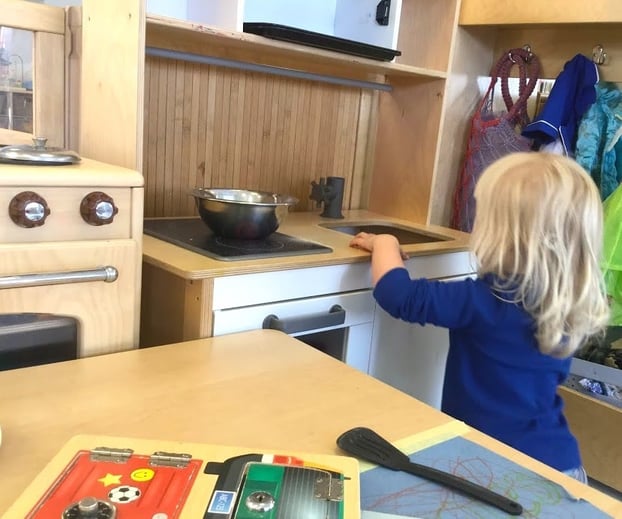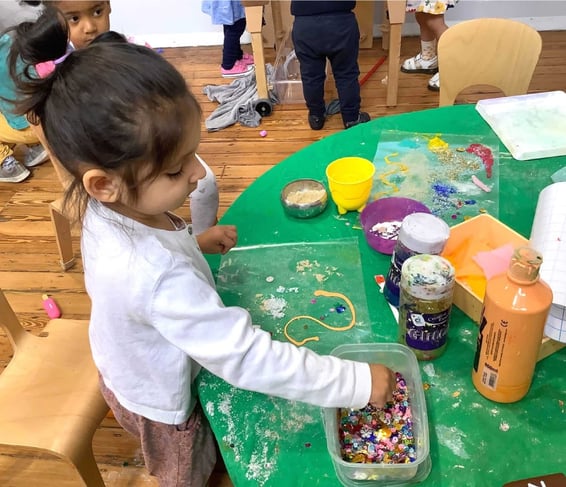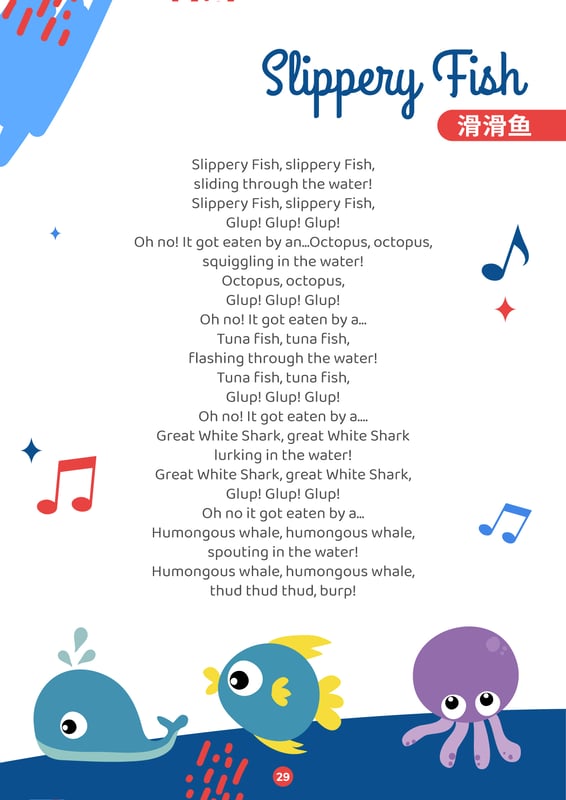Every child learns to speak at their own pace and in their own time. However, supporting and encouraging children’s Language development is essential for fostering children’s communication skills, as well as social skills, confidence and ability to comprehend a wide range of vocabulary.
There are many ways that you can support your child’s language development, one of which is to engage in language activities at home. Therefore, we have listed seven fun language activities for children that you can do from the comfort of your own living room.
1. Exploring Words Through Storytelling
Reading books is an effective way to get your child to expand their vocabulary. Select stories that explore a broad range of themes and storylines, to expose your child to diverse language and ideas. For younger children, books that contain sensory elements such as fabric of different textures are also beneficial for expanding their vocabulary and developing their understanding of the world around them through touch.
In addition, helping children to create their own stories is equally as fun, and will allow their imagination to flourish. This activity can be done in a structured way for older children, by encouraging them to draw their characters out on paper and then annotate the storyline like a comic strip, using as many descriptive words as possible. This will help improve their use of expressive language and their sentence formulation.
2. A Puppet Show
To further encourage your child’s storytelling skills, we recommend helping them to recreate a story as a play or puppet show. Repetition is incredibly important for language learning, and by including fancy dress or craft into the activity, your child can be exposed to further opportunities for repeating and using their new words, in a playful and fun setting. This will allow them to paraphrase the story which they have just read, and to visualise its content. Therefore, gaining a better understanding of the story, whilst developing their ability to condense information and make inferences from a plot line.
Click here to see for a puppet template:
3. Learning Baking Vocabulary
Interactive activities such as baking are perfect for bonding with your child on a lazy Sunday afternoon, whilst supporting them to develop new skills and vocabulary. Begin by laying out each of the ingredients and utensils required and naming them, to help your child learn. If your child is older, have them write out the recipe for further practise, using sequencing words and adjectives. Then when cooking, be sure to state each method clearly, and have your child explain each step, to ensure that they comprehend.

4. Expressing Yourself With Arts and Crafts
Art has a multitude of benefits, including self-expression. Art allows children to explore their imagination, be creative and expel their energy in a positive context. Furthermore, it can be used as an opportunity to introduce new words and concepts, by creating art projects around topics that they have not encountered before, or by using vibrant colours and textures and encouraging them to discuss what they are creating and using in full. Encourage your child to describe the attributes of their art, what shapes and colours are included? What size is their artwork? This will help them answer comprehension questions and articulate what they see.

5. Sensory Play Activities That Aid Speech
Sensory play activities include tasks that utilise the five main senses of touch, taste, sight, hearing or smell. They are very easy to set up at home, and take little planning or money, as most household items can be used, such as shaving foam. When engaging in sensory play, use as many descriptors as possible. How does it feel? How does it sound? This will help your child increase their word bank and develop a clear understanding of what they are experiencing. For a list of activity ideas see here.
6. Learning Lyrics
Listening to and performing songs is an effective way to assist children to acquire new vocabulary and interact with language that they have recently learnt and are becoming familiar with. Catchy lyrics and rhythms make repetition attractive to young children, and singing is as enjoyable as learning through play. If you are looking to challenge your child, you can find songs that have lyrics that are slightly advanced for them, to further develop their knowledge base. Singing will help with articulation and listening comprehension.
This is one of our favourite songs to sing in the nursery just now:

7. Word Games
Finally, games are a fantastic way to entertain children and keep their attention focused. For example, charades, where family members split into two teams and take turns to act out animals, films, movies or anything of interest without speaking. Then, the other team member has to guess what they have gestured. You could tailor the charades to a topic you wish to teach your child, and keep it easy for them to follow. This will improve their ability to make inferences and follow directions.
Moreover, simple board games are also useful tools that you can incorporate into your afternoon, to enhance your child’s language learning and ability to identify and name categories or rules.
Overall, we hope that you enjoy these language activities, and find them helpful! For information on our education and childcare options please see here:
Tags:
Bilingual Education
16-Dec-2020 16:31:33
Related Articles

.webp?width=600&height=501&name=body_dragon_puppets_%20(1).webp)





Write a Comment